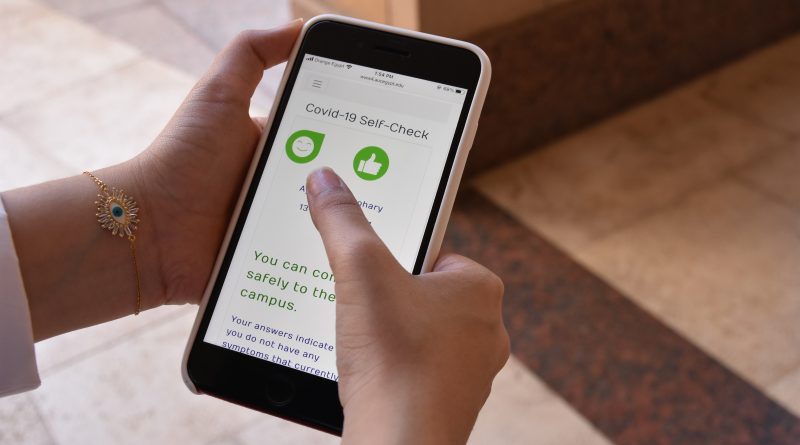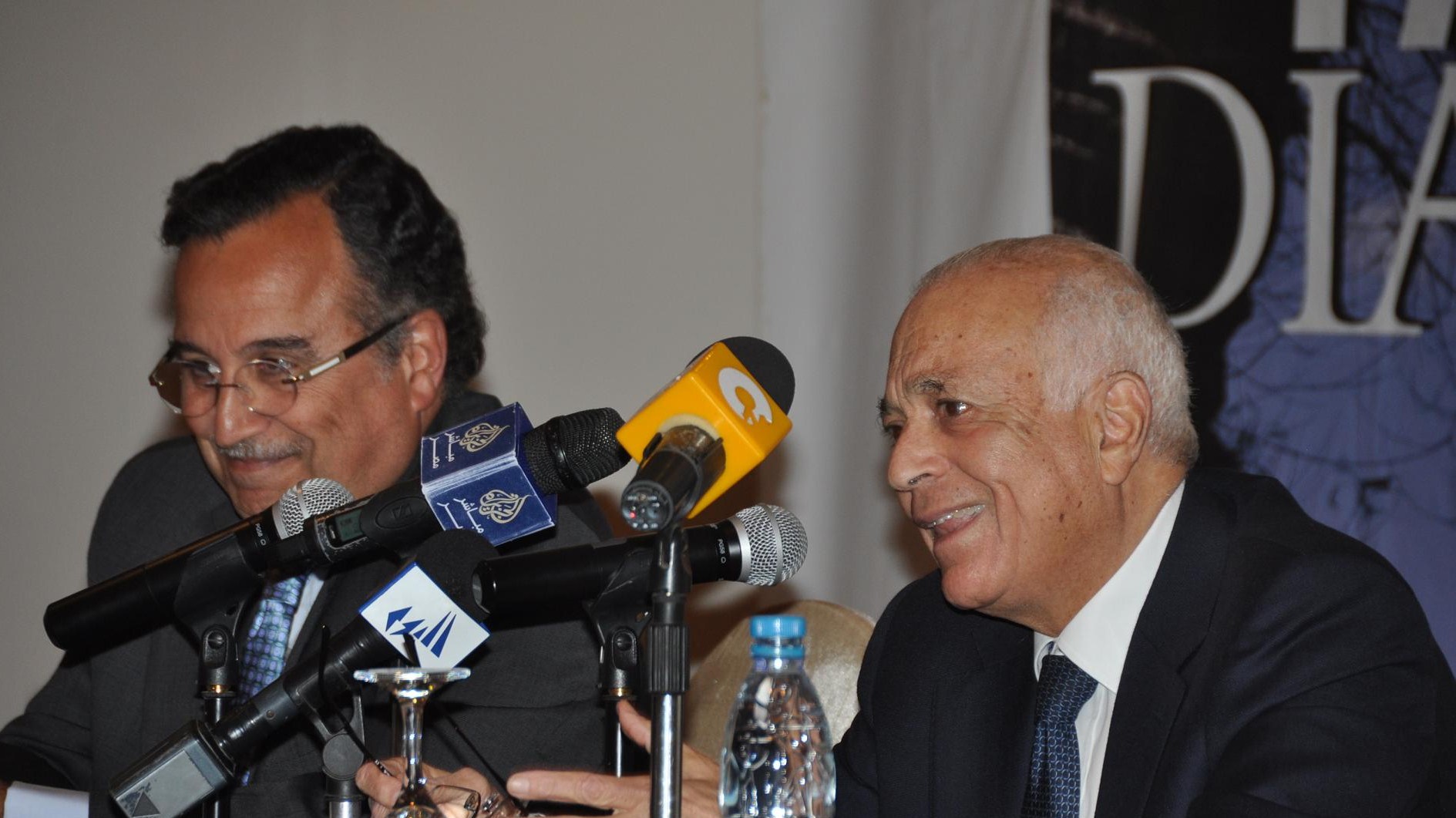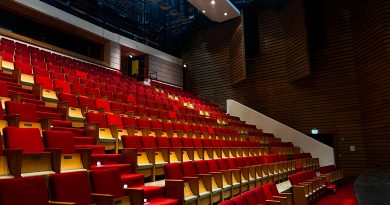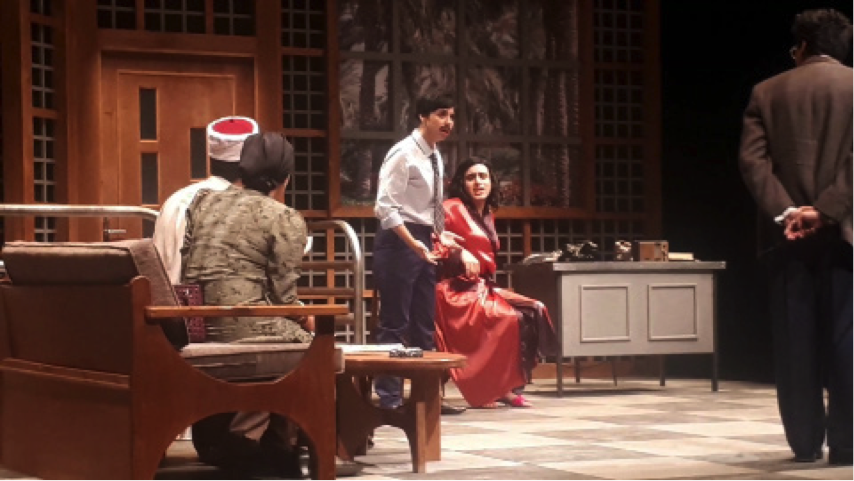Some Students Reluctant to Report Symptoms
By: Malak Kamel
@MK__Malak
Some students have told The Caravan that they are choosing not to disclose any COVID-19 symptoms to the AUC clinic because of what they say are unreasonable protocols they must follow after reporting.
A series of complaints by students posted on the Facebook group Rate AUC Professors revealed their frustration with the way they claim the clinic handles different medical issues.
“They made me isolate although I was negative, which is useless,” Dinah Adel, an architecture graduating senior, said.
Adel says that she was unhappy to have been forced to miss a whole week of classes, especially since work during her senior year is critical to successfully completing her thesis.
She also wishes that her professors would do more to help her catch up on missed material and course work.
Adel admits that she does not intend to notify the university if she has any future symptoms. Instead, she will get tested for COVID-19 and carry out precautionary measures on her own.
A student at AUC, who prefers to remain anonymous, mirrored Adel’s reluctance to report symptoms.
“I didn’t tell anyone I was feeling sick because I felt like the clinic’s reaction would be exaggerated,” she told The Caravan.
Several complaints from students on the Rate AUC Professors Facebook page allege that the clinic needs to more effectively communicate with the community.
Zeina Shalaby, an undeclared sophomore, was a suspected COVID-19 case but tested negative in her PCR test and was supposed to have campus access, based on the clinic’s recommendations. However, she was barred from entry because the clinic had not contacted the ID center to change her status to safe on the self-check form.
“I had to call the clinic and keep nagging. The whole day I was making many phone calls and sending many emails yet I didn’t get access and I missed a whole day of classes,” she said.
Shalaby then had to physically go to campus the next day to resolve the issue.
Bassem Gamil, the director of the AUC New Cairo campus clinic, told The Caravan that investigating reported symptoms varies from case to case. Since each case differs, some students might be confused about the procedures.
He also said that there are protocols which require students who test negative to isolate themselves.
But the Coronavirus can be elusive.
“Some of the cases of COVID-19 are PCR negative, even some [patients] who have been ICU admitted remain PCR negative up until the end while being diagnosed by the CT chest finding from the beginning,” Gamil said.
In medical tests around the world, doctors have found that it takes time for the virus to establish itself in the body. An initial negative test may not mean a person won’t test positive later on.
Ahmed Abdel Moamen, a physician at the clinic, explained that while it is not recommended, students who do test negative can shorten their isolation period by undergoing additional medical tests and scans to ensure that they are in fact negative.
Abdel Moamen also stressed that all the given information regarding health precautions is present in the “Back to Campus” guide sent to students before the start of the semester. He emphasized the importance of reading the protocols carefully to avoid being overwhelmed and confused.
Abdel Moamen says that he understands why they might assume the protocol is exaggerated and that their symptoms are minor or inconvenient. However, he points to a case he recently encountered where the individual reported minor symptoms and had been fully vaccinated with the AstraZeneca vaccine but tested positive nonetheless.
“I know that you believe your symptoms are mild but you cannot guarantee,” Abdel Moamen said.
Both Gamil and Abdel Moamen emphasized that the protocol is thorough and exists to protect the students and the rest of the AUC community.
Abdel Moamen confirmed that problems related to timely communication with the community occur because the clinic is staffed with only three doctors operating under an intense amount of pressure and volume of work due to the increasing suspected COVID-19 cases.
“Sometimes they wonder why we don’t follow up … but we are trying to do our best with the available resources,” Abdel Moamen said.
He reaffirmed that they are continuously attempting to streamline the process without compromising student safety.
Professor Hassan Azzazy, Chair of the Chemistry Department, told The Caravan that some students falsely report COVID-19 symptoms to intentionally miss out on exams, while others refrain from reporting, when actually necessary, to avoid missing out on content. Both options, he believes, disrupt the COVID-19 protocols.
“We, [professors and students], need to exercise maximal courage, honesty and compassion in order to survive this pandemic with minimal impact on student education,” Azzazy said.
He suggests offering online alternatives and makeup sessions for students.




